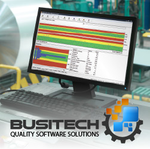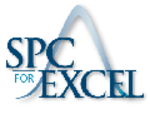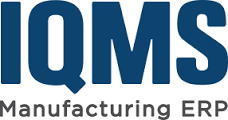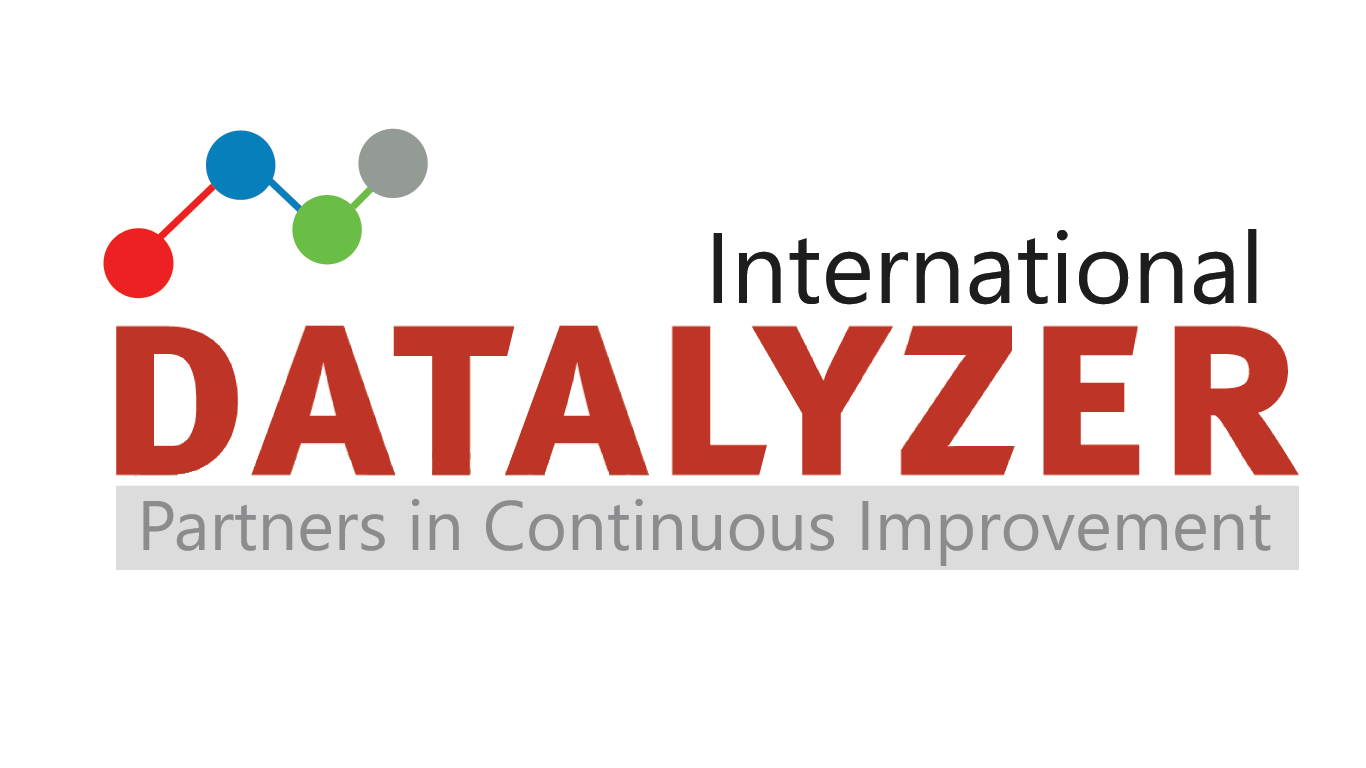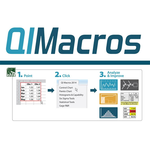Yes, most SPC (Statistical Process Control) software can be used on numerous devices and platforms. This implies that users can use the software on desktop computers, laptops, tablets, and smartphones, independent of the operating system they are running. This makes it easier for teams to communicate and obtain real-time data, regardless of location. However, it is always advisable to consult with the program supplier about specific compatibility requirements.
List of 20 Best Spc Software
Quality Window is a SPC solution for simplifying data analysis. With easy-to-use charts, advanced statistical tools, and smooth data integration, this software is the key to efficient decision-making, waste reduction, and improved operational efficie...Read More Quality Window
QUALAXY SPC - an advanced program designed to enhance production quality using real-time data analysis, digitized processes, and KPI visualization. Optimize cost-effectiveness, streamline operations, and maintain consistent product quality with this...Read More QUALAXY SPC
Elemica is a supply chain management solution. With seamless connectivity and real-time visibility, Elemica empowers businesses to enhance efficiency and collaboration, maximizing ROI. Our innovative platform elevates processes and unleashes the full...Read More Elemica
[FP]-LIMS is a laboratory management software developed in Germany. Customizable and user-friendly, [FP]-LIMS optimizes lab procedures and integrates with a variety of measuring devices for greater efficiency. Trusted by labs globally, [FP]-LIMS incr...Read More FP-LIMS
skyWATS is a software that is transforming the electronics manufacturing sector. Designed to optimize test and repair processes, skyWATS utilizes advanced data analytics and real-time insights to increase production efficiency and improve quality con...Read More skyWATS
GainSeeker is a dynamic software that transforms data into actionable insights to elevate quality, profitability, and customer satisfaction. Its smooth integration with MES, ERP systems, and sensors enables real-time visibility and robust analytics...Read More GainSeeker
QC-CALC SPC is a real-time SPC software for reliable decision-making. Streamline your performance measurement, data management, and regulatory compliance with our advanced modules. Enjoy efficient process monitoring and optimization, along with effor...Read More QC-CALC SPC
Predisys Analytical Suite is a quality control solution designed to streamline SPC and analytics reporting. Enhance productivity and simplify your daily quality control tasks with our innovative software. Experience it for yourself with our free demo...Read More Predisys Analytical Suite
SPC for Excel is a quality control tool designed specifically for industry professionals. Our intuitive software is globally recognized for its effectiveness and is trusted by numerous industries, NGOs, and academic institutions. Benefit from our fre...Read More SPC for Excel
Analyse-it is a leading statistical analysis software designed for efficient and seamless data analysis. Its advanced features enable effortless and powerful data visualization. With over 35,000 satisfied customers, it is recognized as the top choice...Read More Analyse-it
the unrivaled FS Suite - the premier manufacturing software that can be customized to your specific requirements. Boasting over 40 years of industry expertise, it delivers real-time insights on quality and production, seamlessly integrating with your...Read More FS Suite
Upgrade your packaging processes with IQMS Manufacturing ERP. This comprehensive solution offers advanced features like lot and serial UPC labeling, traceability, and document control. With flexible BOM capabilities for dies and inks, your company ca...Read More IQMS Manufacturing ERP
DataLyzer SPC solution for streamlined data collection. Available in 20 different languages and trusted by over 3000 companies globally, this comprehensive software is a necessity for simplifying real-time data collection. Keep your data in check wit...Read More DataLyzer
SPC XL is an advanced statistical analysis software that works seamlessly with Microsoft Excel. It streamlines data analysis and enables informed decision-making with its extensive range of statistical tools, DOE, and Monte Carlo simulations, all wit...Read More SPC XL
QI Macros SPC Software Excel is the go-to solution for creating Six Sigma and SPC charts in Excel. With a range of tools like control charts, Pareto charts, and fishbone diagrams, this add-in streamlines data analysis and helps identify improvement o...Read More QI Macros SPC Software Excel
Statgraphics is a statistical analysis software that seamlessly integrates into any industry setting. With easy-to-use data visualization and analysis features, this versatile tool empowers users to make prompt and informed decisions. Its time-saving...Read More Statgraphics
IntraStage is a software suite that automates data collection and analysis to improve manufacturing processes. By providing increased visibility and a focus on achieving zero defects, IntraStage helps drive performance improvements, cost reduction, a...Read More IntraStage
Zometric IntelliQS is a SPC solution for manufacturing industries. With Xbar R, IMR, p, U charts and comprehensive process capability indices like Cp, Cpk, Pp and Ppk, take control of your processes like never before. With multiple data capture optio...Read More Zometric IntelliQS
WinSPC - the affordable and dependable SPC solution that delivers top-quality products. Our experienced technical team offers convenient online support during business hours, ensuring that your quality goals are achieved with ease. Begin your free tr...Read More WinSPC
NWA Quality Analyst, a renowned SPC software that simplifies charting procedures for enhanced productivity. Our feature-rich program encompasses advanced tools for complaint handling, compliance tracking, defect management, and seamless integration w...Read More NWA Quality Analyst
Learn More About Spc Software
- What Is SPC Software?
- What Are The Recent Trends In SPC Software?
- Benefits Of Using SPC Software
- Important Factors To Consider While Purchasing SPC Software?
- What Are The Key Features To Look For In SPC Software?
- Why Do Businesses Need SPC Software?
- How Much Time Is Required To Implement SPC Software?
- What Is The Level Of Customization Available In SPC Software?
- Which Industries Can Benefit The Most From SPC Software?
- Conclusion
What Is SPC Software?
SPC (Statistical Process Control) software is a strong tool for monitoring and analyzing process data in the manufacturing and other industries to enhance quality and efficiency. This software combines statistical approaches and data analysis to deliver real-time information about a process's stability, capability, and performance. SPC software enables firms to track and monitor critical process parameters such as temperature, pressure, flow, and quality measures in order to detect any fluctuations or abnormalities that may impact the manufacturing process.
By continuously monitoring these variables, SPC software enables firms to identify possible problems early on, making it easier to take remedial action and avoid production delays or mistakes. Furthermore, SPC software analyzes data using complex statistical methods, helping firms to uncover patterns and trends that manual analysis may miss.
These insights can assist firms in making more informed decisions and optimizing their processes to produce higher-quality results. Another important aspect of SPC software is the ability to generate detailed reports and visualizations that can be used to convey process performance to stakeholders and identify areas for improvement. This makes it an extremely useful tool for managers, engineers, and quality control specialists alike.
When selecting SPC software, you should examine its compatibility with your organization's existing systems and data collection methods. Look for user-friendly software that has capabilities like real-time monitoring, automatic data analysis, and configurable reporting to meet your specific business requirements.
What Are The Recent Trends In SPC Software?
SPC software, or Statistical Process Control software, has evolved over time to meet the ever-increasing demands of today's industries. As technology progresses and data becomes more critical for decision-making, SPC software plays an increasingly significant role in industries such as manufacturing, healthcare, and finance.
Let's explore, we will go over the latest trends in SPC software that buyers should be aware of before making a purchase.
1. Cloud-Based Solutions: One of the most significant changes in SPC software is the transition to cloud-based solutions. As businesses become more digital and remote, there is a growing demand for a flexible and accessible SPC software solution. Cloud-based SPC software enables users to access data and analysis from anywhere with an internet connection, making it an excellent alternative for businesses with several sites or a remote workforce.
2. Advanced Analytics: In recent years, SPC software has made substantial improvements to its analytics capabilities. SPC software can now undertake complicated data analysis, discover patterns, and predict trends using artificial intelligence (AI) and machine learning algorithms, allowing for better decision making. This trend has improved the accuracy of SPC software while also reducing the amount of manual labor necessary for data processing.
3. Integration With Other Systems: SPC software is increasingly being integrated with other systems, including Enterprise Resource Planning (ERP) and Customer Relationship Management (CRM) software. This connectivity allows organizations to have a complete picture of their operations, from manufacturing to consumer feedback, all in one spot. As a result, firms can make better-informed decisions and increase overall efficiency.
4. Real-Time Monitoring: In today's competitive market, firms must monitor their data in real time. SPC software now has the capacity to monitor data in real time, delivering immediate alerts and notifications for any process abnormalities. Real-time monitoring enables firms to take fast action to avoid quality problems, reduce downtime, and boost productivity.
5. Mobile Functionality: With the growing popularity of smartphones, mobile functionality has become an essential element for SPC software. Mobile apps allow customers to access data, reports, and analysis from their cellphones, keeping them up to date and informed while on the go. This trend has made it easier for distant employees and managers to stay connected and make timely decisions based on real-time data.
Benefits Of Using SPC Software
SPC software, also known as statistical process control software, is a sophisticated tool that allows firms to monitor and analyze their operations in order to detect and prevent future problems. It provides useful data and insights, allowing businesses to make data-driven decisions and improve overall performance.
1. Enhanced Quality Control: One of the most significant advantages of adopting SPC software is that it allows firms to maintain strong quality control over their processes. It enables real-time monitoring of crucial process parameters such as temperature, pressure, and flow, ensuring that they remain within predetermined control limits. Businesses that regularly monitor these factors can detect and remedy any deviations that may jeopardize the quality of their products. This results in constant high-quality output, which reduces the likelihood of faults and consumer complaints.
2. Cost Savings: Implementing SPC software can help organizations save money in the long term. Businesses can reduce waste, errors, and product yield by recognizing and preventing process variances. This can result in significant cost savings, particularly for organizations that rely on pricey materials or have a limited budget for quality control. Furthermore, improving product quality can result in increased customer satisfaction and retention, lowering the overall cost of handling product recalls and returns.
3. Increased Efficiency: SPC software can also help organizations increase their overall efficiency. Businesses that regularly monitor and analyze process data can find areas where they can streamline operations, shorten cycle times, and eliminate bottlenecks. This results in a more efficient production process, which maximizes resource use and shortens lead times. As a result, firms can raise output and satisfy client demand while maintaining quality.
4. Compliance And Audit Readiness: Compliance is critical for organizations operating in regulated industries. SPC software can help guarantee that processes comply with regulatory requirements established by agencies such as the FDA or ISO. Businesses that continuously monitor and record essential process data can readily demonstrate compliance during audits and regulatory inspections. This lowers the likelihood of compliance difficulties and penalties, offering businesses piece of mind.
5. Real-Time Visibility And Data Analytics: SPC software provides real-time visibility into essential process parameters, which reduces the need for manual data gathering and analysis. It can automatically gather and analyze data, giving firms up-to-date information on process performance. Real-time data enables firms to quickly identify and resolve process variations, as well as make data-driven decisions to optimize overall operations.
Important Factors To Consider While Purchasing SPC Software?
When it comes to choosing SPC software, you must examine many key elements in order to make an informed decision. These variables will not only assist you in selecting the appropriate software for your requirements, but will also ensure that you get the best value for your money.
Let's explore, we'll go over the most important variables to consider while selecting SPC software.
1. Compatibility: The primary factor to evaluate is compatibility. Make certain that the software you're contemplating is compatible with your present systems and technologies. This includes operating systems, databases, and any other software you may be utilizing. Investing in incompatible software can cause compatibility issues and reduce program performance.
2. User-Friendly Interface: A decent SPC program should have a simple interface that is easy to explore and comprehend. This is especially critical if you do not have an IT professional on your staff. A complex interface would not only slow down your work but also necessitate more resources to train your personnel.
3. Features And Functionality: Before making a purchase, thoroughly consider the features and functionality provided by SPC program. It should have all of the required characteristics, such as statistical process control, data analysis, and visualization tools. It should also have advanced capabilities such as real-time data monitoring and notifications to assist you in promptly identifying and correcting process differences.
4. Data Security: When purchasing SPC software, data security should be a major priority, just like it is with any other program. Make sure the program includes security features like encryption and access control to protect your data from unwanted access or cyber attacks. It should also include a backup and recovery system to prevent data loss.
5. Scalability: Your company may expand in the future, and your software must be ready to grow alongside it. As a result, it is critical to select scalable software that can manage additional data and users while maintaining performance. This will save you the time and money of needing to change the software as your firm grows.
6. Customer Support And Training: No matter how user-friendly a software is, you may still face problems or have questions that need to be answered. As a result, it is critical to choose SPC software that provides great customer support and training. This will ensure that you get the most out of the program and have a seamless experience.
By taking these aspects into account when selecting SPC software, you can ensure that you select the best software for your needs and maximize the features and functionality. When analyzing multiple possibilities, keep your organization's specific goals and budget in mind to make an informed decision and accomplish the intended outcomes.
What Are The Key Features To Look For In SPC Software?
When it comes to SPC Software, there are various important things to consider before purchasing. These features will not only assist you in making an informed decision, but will also ensure that the program fulfills your specific needs and expectations. So, without further ado, here are the main things to look for in SPC software:
1. Real-Time Data Collection And Analysis: The basic goal of SPC Software is to gather and analyze data in order to detect changes and patterns in a process. As a result, it is critical to select software that has real-time data collection and processing capabilities. This allows you to monitor your process and spot problems as they arise, allowing for rapid remedial action.
2. User-Friendly Interface: SPC software can be sophisticated, and if you're unfamiliar with statistical analysis, it might be intimidating. Look for software with a user-friendly interface, intuitive controls, and clear images. This will make it easier for you to enter data, navigate the software, and analyze the findings.
3. Statistical Tools And Charts: Reliable SPC software should have a number of statistical tools and charts to assist you in efficiently analyzing your data. Look for control charts, Pareto charts, histograms, and scatter plots. These tools can help you visualize your data and find patterns and trends rapidly.
4. Customizable Alerts And Notifications: The ability to create custom alerts and notifications is critical in SPC Software. This function will inform you when your process becomes out of control or when a certain parameter deviates from the established norms. It will allow you to take quick action to avoid costly errors or flaws.
5. Integration With Other Systems: In today's digital world, integration is critical for expediting processes. Look for SPC software that can work with other systems including factory execution systems, quality management systems, and enterprise resource planning software. This will allow for seamless data transfer and reduce human data entering errors.
6. Mobile Compatibility: With the development of remote work and the demand for real-time data access, it is critical to select SPC Software that is mobile compatible. This allows you to view and analyze data from anywhere, as well as make any necessary changes to your process while on the go.
7. Customer Support And Training: Finally, examine the degree of customer support and training offered by the SPC Software vendor. After purchasing the software, you will require continuing technical assistance and training to fully realize its potential, therefore confirm that the vendor provides suitable support services.
Why Do Businesses Need SPC Software?
SPC (Statistical Process Control) software is a strong tool that helps organizations monitor and improve their manufacturing processes. In today's fast-paced and highly competitive business environment, organizations must always aim for quality, efficiency, and cost-effectiveness in their operations to stay competitive. This is where statistical process control software comes in.
One of the primary reasons firms want SPC software is to maintain consistent quality in their products or services. By evaluating and tracking data from the manufacturing process, SPC software assists in identifying and controlling any variances that may arise, preventing faults and errors from reaching customers. This not only maintains product quality, but also contributes to the brand's solid reputation.
Furthermore, SPC software enables firms to identify process improvement opportunities. The software can identify chances for cost savings and optimization by utilizing statistical tools and approaches. This can result in better efficiency, less waste, and eventually higher revenues. Another important feature of SPC software is the capacity to perform real-time data analysis.
This enables organizations to spot any irregularities or variations in the manufacturing process and take corrective action before they become major issues that affect productivity and profitability. SPC software can also help you comply with regulatory regulations and industry standards. Businesses that track and store data may quickly provide reports and evidence of their compliance with quality standards, which may be necessary for audits or certifications.
How Much Time Is Required To Implement SPC Software?
The implementation time for SPC software varies depending on your organization's individual needs and requirements. On average, it takes 3-6 months to fully integrate SPC software, although this can vary based on the complexity of your processes and the level of customization required. During the early stages of deployment, you must have a thorough understanding of your organization's procedures and data collection methodologies.
This will aid in determining the major areas where SPC software can be implemented and how it can benefit your operations. Next, a detailed study of the different SPC software options is required. This includes comparing the features and functionalities of various software, as well as taking into account cost, compatibility with existing systems, and customer support. After selecting the program, the implementation procedure begins.
This includes installing and configuring the software, integrating it with your existing systems, and teaching your team how to utilize it efficiently. A reputable SPC software provider will provide extensive training and assistance to ensure a smooth and effective implementation. Depending on the complexity of your processes and the level of customisation necessary, testing and fine-tuning the software may take some extra time.
It is critical to set aside adequate time for this step to guarantee that the software is fully optimized for your organization's requirements. Overall, the time necessary to adopt SPC software varies, but investing in the correct software and executing a well-planned implementation process can dramatically streamline your operations and provide long-term benefits to your firm.
What Is The Level Of Customization Available In SPC Software?
SPC software, also known as statistical process control software, is a sophisticated tool that helps firms evaluate and monitor their processes, detect and correct deviations, and improve overall quality and efficiency. One of the most important elements to consider when choosing SPC software is the level of customization available.
Let's explore, we'll look at the many levels of customisation available in SPC software and how important they are for firms.
1. Basic Customization: At its most basic, SPC software allows users to enter their own data and generate charts and graphs to follow their processes and discover patterns. This level of customization is appropriate for small firms with straightforward operations and few data points.
2. Metric-Specific Customization: SPC software enables firms with more complicated processes to customize metrics. This provides the ability to define thresholds for various metrics including control limits, specification limits, and target values. This enables firms to monitor and control their processes based on unique criteria.
3. Customized Alerts And Notifications: Many SPC software packages include the ability to set up customized alerts and notifications. This enables firms to receive real-time notifications when a process becomes out of control or a specific statistic surpasses its limitations. These warnings ensure that any possible flaws or errors in the process are detected and addressed promptly.
4. Advanced Data Analysis And Reporting: Some SPC software has advanced data analysis and reporting tools, allowing firms to generate personalized reports and conduct in-depth data analysis. This level of customization is useful for firms that need to track and analyze a huge number of data points in order to extract valuable insights from them.
5. Integration With Other Systems: SPC software can also be customized to integrate with other systems such as ERP or MES. This provides firms with a uniform system for data tracking and analysis, decreasing data entry errors and increasing overall process efficiency.
Which Industries Can Benefit The Most From SPC Software?
SPC software, also known as Statistical Process Control software, is a powerful tool that may help many sectors improve efficiency, quality, and production. This program analyzes and monitors processes using statistical methods, allowing firms to identify and minimize variations that may have a negative impact on their operations. So, which industries will profit the most from SPC software? Let's dive further.
1. Manufacturing Industry: One of the key industries that can benefit the most from SPC Software is manufacturing. In this sector, quality control and efficiency are critical to success. SPC software provides real-time monitoring and process control, ensuring that goods have consistent quality and few flaws. It also assists in identifying process deviations and implementing remedial procedures to avoid quality issues. This leads to enhanced overall efficiency, less waste, and higher customer satisfaction.
2. Healthcare Industry: The healthcare industry is another area where SPC software can be quite beneficial. In this sector, precision and accuracy are essential. SPC software can help healthcare institutions monitor and regulate a variety of procedures, including drug administration, diagnostic tests, and patient care. It can also help identify possible hazards and improve patient safety by recognizing variations from regular procedures.
3. Food & Beverage Industry: Ensuring food safety and quality is critical in the food and beverage sector. SPC software can help this industry's organizations maintain uniformity in their production processes, from raw material sourcing to packaging and delivery. It can also help you discover potential contamination and take rapid corrective action. This decreases the danger of food recalls, preserves product quality, and protects consumer safety.
4. Information Technology Industry: To remain competitive in the fast-paced information technology business, it is critical to aim for process efficiency and consistency. SPC software allows IT organizations to monitor and control processes including software development, project management, and customer support. It also aids in the identification of bottlenecks and improves the organization's overall efficiency and production.
5. Construction Industry: The construction sector has numerous processes with various subcontractors and suppliers, making it difficult to maintain consistency and quality. SPC software can help monitor and control these operations, ensuring that they meet the agreed-upon requirements. It can also detect irregularities in construction materials and take corrective action before they affect the project's quality or completion timeline.
Conclusion
Finally, selecting the appropriate SPC Software for your firm is a critical decision that can have a significant impact on overall quality control and efficiency. It is critical to analyze the essential features, pricing, and customer support provided by various software solutions to ensure that it meets your individual requirements and budget. Furthermore, it is critical to assess the software's compatibility with your existing systems and processes to avoid potential integration issues.
You should also consider the software's scalability and user-friendliness, as these variables can significantly impact its effectiveness and simplicity of use. Furthermore, completing extensive research and reading reviews from other users can provide useful insights into the software's performance and reliability. Finally, the correct SPC Software can assist streamline your quality control operations, minimize errors, and increase overall productivity in your firm. We hope this buyer's guide has provided you with enough information to make an informed purchase that matches your company's needs.
Spc Software FAQ's
Can SPC Software Be Accessed Across Multiple Devices And Platforms?
Is SPC Software Future-Proof And Adaptable To Emerging Technologies Like AI, Blockchain Or IoT?
Yes, most modern SPC (Statistical Process Control) software is intended to be future-proof and adaptable to new technologies such as AI, blockchain, and IoT. These programs employ sophisticated algorithms and adaptable frameworks that can be quickly combined with new technology. This ensures that the software continues to satisfy the changing needs of the sectors it serves while remaining relevant in an ever-changing technological environment.
Is There A Free Trial Offered To Assess SPC Software Before Committing?
Yes, many SPC software vendors offer free trials to potential users, allowing them to evaluate the software's features and functionality before making a commitment. This allows organizations to decide whether the software satisfies their requirements and is worth investing in. It is suggested that you take advantage of free trials to ensure the program matches your needs.
Does SPC Software Offer Data Security Features And Meet Regulatory Compliance Standards?
Yes, most SPC software includes data security features like encryption, user authentication, and access control to safeguard the confidentiality and integrity of your data. Furthermore, much SPC software meets regulatory requirements like as ISO 9001 and FDA regulations, ensuring data accuracy and compliance. Check with your software provider for unique security features and compliance regulations.
Can SPC Software Integrate Seamlessly With Existing Tools And Platforms?
Yes, SPC Software integrates effortlessly with existing tools and platforms. It is compatible with a variety of software and systems, including as databases, spreadsheets, and quality management tools. SPC Software integrates with your existing tools to streamline data gathering and analysis, remove duplicate data entry, and increase overall productivity. This enables for a more efficient and comprehensive quality control approach.

